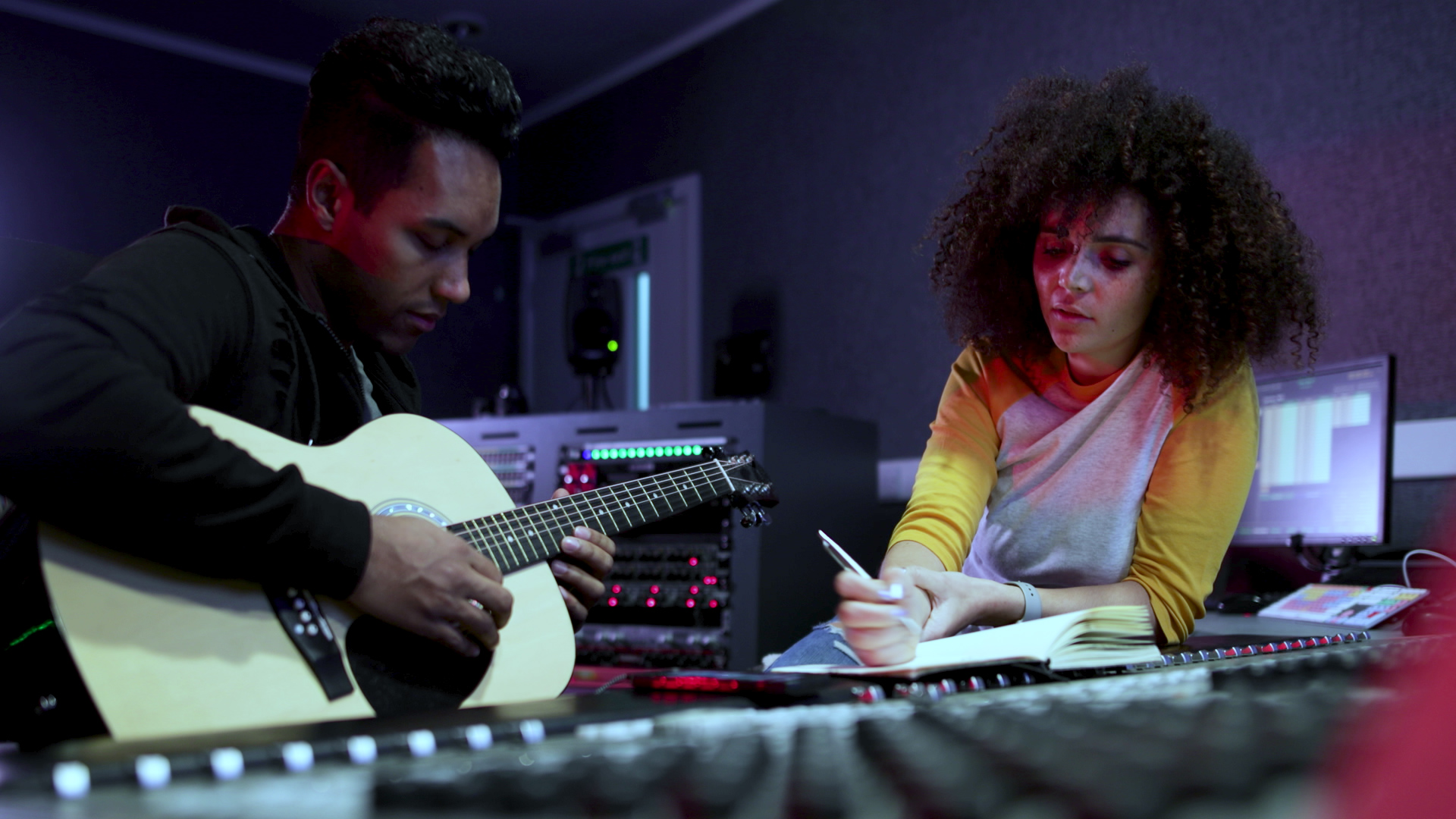Aaron Meza is an instructor in the Music Business Program at Musicians Institute teaching Music Publishing, Music Licensing and Music Supervision. He is the owner of Amazon Ear Productions and Meza Music Publishing (ASCAP). He is currently a professional member of The Recording Academy (NARAS), SAG-AFTRA, ASCAP, and LARAS, and was formerly the West Coast Director for The American Guild of Authors and Composers (AGAC). He is also the author of “You’ve Written A Song, So Now What?”
In this blog post, Meza shares 10 practical business tips that every songwriter should keep in mind while they navigate the business.
1. Turn your songs into your intellectual property
First thing’s first. You might have a wonderful idea in your head, but you need to put that idea into a tangible form. In order to own a copyright and create your intellectual property, you can make a recording or write it down in music notation.
2. Register your copyright
Consider registering your copyright with the US Copyright Office using the online registration process at copyright.gov. Your claim will be put in the US Public Record and registering will allow you to take legal action if ever needed.

Blog Post
"*" indicates required fields
By submitting this form, I authorize Musicians Institute (MI) to make or allow the placement of calls, emails, and texts to me at the phone number that I have provided, including through the use of automated technology, or a prerecorded or artificial voice. I understand that I am not required to provide my phone number as a condition of purchasing any property, goods, or services. I agree to the terms of MI’s Privacy Policy. MI will not sell or rent your information to third parties, and you may unsubscribe at any time.
3. Add metadata to your song
Make sure to add your metadata to your song, which is defined by Spotify as “the collection of information that pertains to a song file, such as Artist Name, Producer, Writer, Song Title, Release Date, Genre or Track Duration.” This information is vital in making sure that you, as a songwriter, are paid properly.
4. Organize business records
You will own your property for your life, and after you are no longer here, your estate will own it for another seventy (70) years. Try to keep your business records and files in order and up to date for those who will come after you.
5. Understand how royalties work
You are the songwriter and the music publisher of your song. Publishing royalties are split into the writer’s share and the publisher’s share, as a 50/50 split.

6. Create a music publishing company
You can create a music publishing company and put your inventory into your company. After you form a publishing company, it’s important that you create a unique name for it. Affiliate with a US PRO, performing rights organization, e.g. ASCAP or BMI as both a writer and a music publisher.
7. Learn about your termination rights
If you ever sign a music publishing deal and transfer your copyright to someone else, you have certain Termination Rights that allow you to recapture your copyright in the future.
8. Make sure to sign a split sheet when you begin a project
If you collaborate on a song, make sure to sign a split sheet to indicate how the copyright ownership should be divided. Please note, that without a signed split sheet or signed collaboration agreement, the copyright is split equally between all the co-writers.
9. Recognize the 2 types of copyrights for a song
There are two copyrights for a song, the © and the ℗. The song is called the Work and is represented by the symbol © and is owned by the writer or music publisher. The recorded performance of the song is called the Sound Recording ℗ and is owned by the record label, the production company or the recording artist.
10. Consider writing up a band agreement
If you are both the songwriter and the recording artist, you might own both copyrights. If you are a member of a band, then you should consider having a band agreement. This will detail your business relationship with the other members and who owns the copyrights and how royalties are split.
The Music Business Program (MBP) at the Musicians Institute has all the classes a songwriter and recording artist needs to get their business act together and put themselves in the best position to succeed. For more information about MBP please visit mi.edu.
*This is for educational purposes only, not intended as legal advice.

